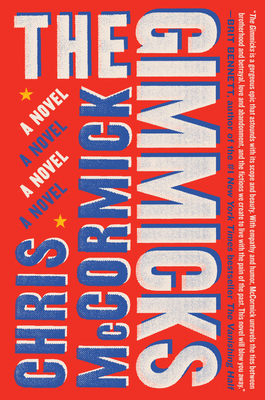
To talk of genocide and gimmickry at once is risky, but Chris McCormick pulls it off with considerable success in his debut novel The Gimmicks. McCormick uses the metaphor of “the gimmick” – the persona adopted by a professional wrestler, combining personal traits and social stereotypes – to explore how people create roles and narratives to make sense of national tragedy: specifically, the Armenian genocide, the systematic murder of 1.5 million Armenians by the Ottoman Empire during the First World War. Despite its meaning-making power, the danger with a gimmick is that one may start believing it: “When a guy loses sight of the line between real life and the role he’s playing — we call that living the gimmick,” explains one of McCormick’s characters, the wrestling manager Terry Krill. The Gimmicks explores how living the gimmicks that its characters create to process intergenerational trauma paradoxically extends that trauma further, with its effects reverberating through 1970s Soviet Armenia to 1980s California.
At its heart, The Gimmicks is the story of a love triangle: Ruben and Avo are ‘brothers’ (cousins in fact), while each is in love with Mina, Ruben’s brilliant rival in backgammon. Yet this triangle is distorted in its allegiances and its repercussions. The “enormous but entirely sweet-hearted” Avo is torn between Ruben, who is possessed by the need to avenge the genocide and its continued denial by Turkey, and Mina, who wishes to move forward. Ruben leverages Avo’s love in a scheme to replace Mina in a backgammon tournament in Paris, resulting in a tragedy that rips the three apart, with Ruben joining the Armenian Secret Army for the Liberation of Armenia (ASALA, a real-life terrorist organization aimed at securing global recognition for the genocide), and involving a reluctant Avo in America. While Avo temporarily escapes to work with Krill as a professional wrestler, he is tragically roped back into the past.
McCormick deftly unfolds the novel’s intricate plot in non-chronological chapters narrated by different characters. Yet The Gimmicks is most successful when it forswears its title, and dwells on sincerity: on the earnestness and wistful wisdom of its most vivid characters, Avo and Mina. While in an interview with LAPL Blog, McCormick (who is Armenian on his mother’s side) names the poetically-minded Avo as the novel’s “true center,”[1] it is Mina who provides much of its poetry, being both cognizant of the genocide and of the need to grow beyond it: “Imagine if they never dropped the dead lemons from last year, or the year before that. Just went on carrying all their old, shriveled lemons until the branches sagged so low that no new fruit could grow.” Her life registers the cost of the men’s inability or unwillingness to emerge from the past, even as she begins a new life in America with her family.
Less successful is the character of Ruben, which is unfortunate, given his actions drive the plot. With “the look of an old man cursed to live in a child’s body,” Ruben personifies the grip of the past, which impedes the characterization of his more human qualities. His hold on Avo and his love for Mina are unconvincingly drawn. When his destructive tendencies turn on himself, the result is a slow petering out that reduces the emotional impact of the novel’s ending.
Nevertheless, The Gimmicks is an immersive and lyrical take on intergenerational trauma, which can encompass generations and countries beyond the reach of the original event. Like its title, The Gimmicks combines elements from several genres and tropes – sports fiction, romance, tragedy, immigration narratives – to fascinate long after the show ends.
— Pritika Pradhan